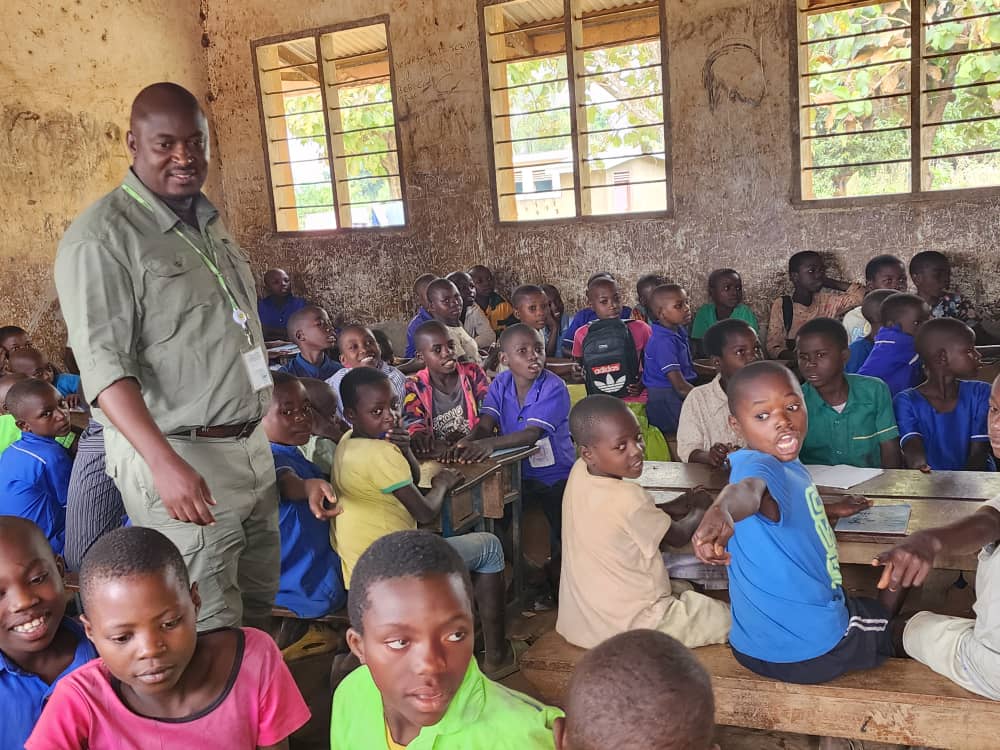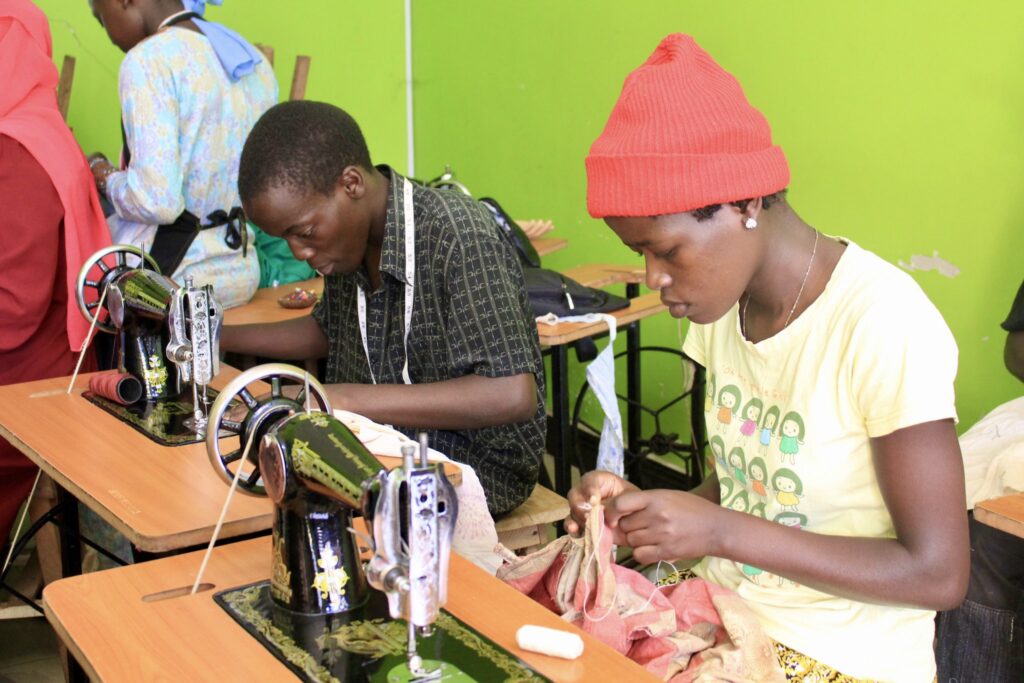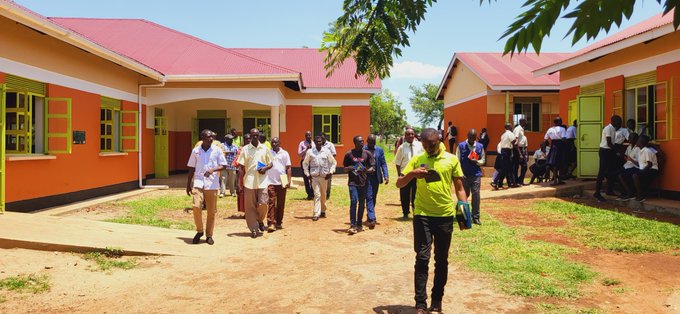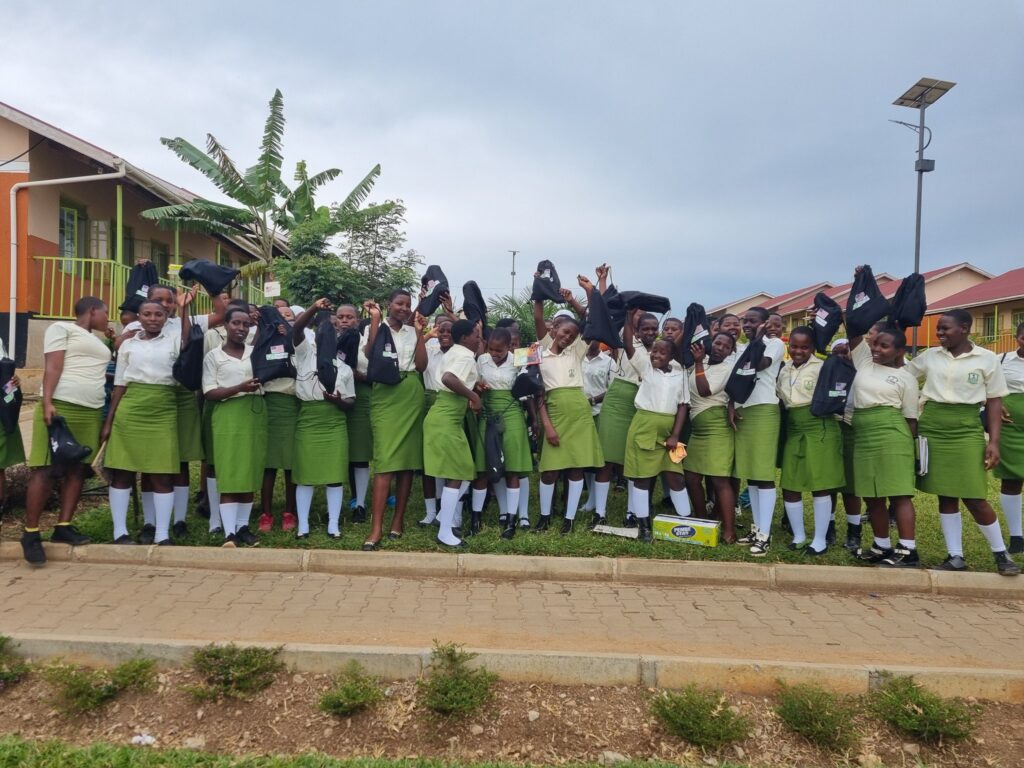Ortega Group is currently compiling the state of Sustainability Report in Uganda. As part of this exercise, Ortega Group is conducting interviews with multi-stakeholder groups, and key players in the Ugandan environment to understand their views on Sustainability, how this has been contextually interpreted and what the future holds for organizations as regards Environmental, Social and Governance aspects.
Ortega Group caught up with Florah Tumwebaze, the Partnerships coordinator at Finn Church Aid Uganda. Finn Church Aid (FCA) is Finland’s largest international aid organisation with more than 70 years of experience and has been operating in Uganda for now 10years. Finn Church Aid Uganda is tasked with three thematic areas: the right to peace, quality education and sustainable livelihoods.
To achieve sustainability in their operations, Finn Church Aid (FCA) ensures first that there’s an alignment with government priorities. FCA brings both the communities and the government structures to the forefront of all their operations, right from planning projects, implementation, monitoring, evaluation and Learning. Given that the programmes under implementation are focused on improving communities, these communities form the core both in designing, implementation and in the feedbacking to form an end-to-end loop.

In education, FCA makes use of the community structures of the Parent-Teachers Associations (PTAs), the School Management Teams (SMTs), the education local government arms, Foundational bodies, to mention but a few. Through this stakeholder-oriented and driven approach, FCA gets to run the joint implementation of programmes, including construction of school infrastructure that is linked to the government support systems to ensure sustainability. Through the Teacher Training Pillar, FCA trains the teachers, so that they acquire the pedagogical competencies to deliver the curriculum content but also carry out continuous assessments to ascertain whether learning is taking place. In case there are deviations, teachers then conduct remedial learning lessons. This can only be achieved if teachers are using the right pedagogy and if continuous professional development is part of their routine work. This model is unique since it ensures continuity once FCA has exited from the communities. It’s a form of results-sustainability post-project implementation. Thus, the gains achieved during implementation are not lost post-exit.
The specific focus area of FCA livelihoods specialization is small-scale entrepreneurship and employment with emphasis on women and young people. Adequate and sustainable livelihoods contribute positively to both the fulfilment of the right to work, right to food and the right to adequate standard of living but also empowers communities to be self-reliant and achieve fulfilling lives and sustainable future. Therefore, the promotion of the right to livelihood is an important part of rights-based efforts that promote poverty reduction. FCA establishes Common User Facilities for value addition and managed by communities through established local enterprise committees.
Tumwebaze notes that FCA still ensures operations happen within existing structures. She gives a glaring example of agriculture. “If we are looking at agriculture, we look at developing value chains. But still the beneficiary is at the forefront of the development of these value chains,” Tumwebaze explains. The role of FCA is in facilitating, facilitating in the formation of farmer-producer groups and cooperatives and then linking these groups to financial institutions and Markets. Building capacity among these establishments is key to FCA but most important to the farmer.
Sustainability as Beneficiary-Centred Implementation
FCA has also been active in organizing the formation of Village Savings and Loans Associations (VSLAs) among the beneficiaries. The VSLA Model aims to empowering beneficiaries to generate readily available pool of resources that can easily be accessed and used to boost family/individual owned businesses. The model promotes financial inclusion of the un-bankable communities in the wider money economy and makes them self-sustaining. The VSLAs have further been supported to digitalise their operations with Fin Techs so that they can create a track record to further access more finances from the Micro Finance Institutions. We appreciate there is security in groupings- in farmer groups and cooperatives, farmers are saving and investing together. “All the trainings that we do and all the services that we provide, we provide them through the established groups and that is to say that if the project comes to a closure, we are assured of sustainability,” Tumwebaze notes. The goal is for the beneficiaries to steer these initiatives by themselves, and thus drive their own change.
FCA is also more focused with its targeting, ensuring that the bulk of their beneficiaries is reflecting of the population base in the country. Most of the farmers they target are especially women and youth, and often supporting them to access resources such as land, money, farm inputs, markets, technology, among others. For FCA, sustainability is about opening up access for these beneficiaries while ensuring that the beneficiaries are steering the ship of access.
To address climate change and build more resilient and responsive agricultural value chains, FCA has committed most of its efforts on the farms. “At the household level, it’s been efforts to encourage use of improved farming methods, improved farming seeds, thus ensuring farmers have better output/produce than what they initially had,” explains Tumwebaze.
In the line of peace, FCA has mainstreamed “the right to peace” across the programme. Peace clubs have been formed in schools and in communities and this initiative has come in handy especially in Refugee communities. Through peace clubs, FCA fosters dialogue, conflict resolution skills, and social cohesion. These clubs provide a support system for refugees, encourage social inclusion, and empower young people to be agents of peace for a more stable future. Additionally, FCA collaborates with security forces, local governments, and rehabilitation mechanisms to ensure young people receive comprehensive support, conflicts are mitigated, and involvement in violent extremism is curbed. This multi-pronged approach empowers communities, especially refugees, to build a more peaceful and stable future.
“In all our programming, what our driving vehicle is education. We equip communities, especially women and youths, with practical tools for success through Technical, Vocational Education and Training (TVET) alongside Business Development Services (BDS),” she notes. FCA’s educational programs go beyond basic skills training, approach including crucial post-training support. Monitor the businesses launched by graduates, reviewing financial records, tracking profits, and identifying areas for improvement. This proactive “course correction” helps ensure business stability, take-off, and ultimately, long-term sustainability.
Sustainability Post Exit and Lessons Learned
FCA Uganda has been able to achieve post-exit sustainability in places such as Yumbe and Moyo. Although the programme scaled down in Yumbe, the school projects are still ongoing, and there’s timely feedback that’s tracked. In Rwamwanja Refugee Settlement, FCA had a Healthy Food Africa (HFA) project with farmer groups, and with post-exist, the successes have continued to be registered and tracked. The farmer groups that were formed in Rwamwanja have remained operational and still at the centre of their initiatives. FCA’s other model of operation has been working with Local partners, building their capacity and ensuring sustainability structures are institutionalized at organisational level. As FCA, we believe local partners have the ability to bring deep community understanding and long-term commitment, enabling tailored interventions and sustainable positive change.

There are also lessons to be drawn from FCA’s decade of operations in Uganda. One of these is that sustainability shouldn’t be measured at the end of the project. “Sustainability should be incorporated in programming at every level of implementation. Impact shouldn’t be measured at end of the project. At every activity at every input, at every output, at every outcome, someone should be able and in position to track sustainability,” Tumwebaze shares lessons. The perils of end of project measurement of sustainability lie in the fact that often it’s too late to right the wrongs at the end.
“At every step that we take, let it be an activity, Let it be at an outcome, when we are writing a month or quarter report task your teams to keep a keen eye on the project sustainability initiatives. If you’re investing this money, why are you investing it and what is the outcome? What is your sustainability plan? What have you achieved using these resources,” Tumwebaze tells those in the related humanitarian aid and development sectors.
Sustainability and Multi-Stakeholder Interests
In FCA’s field of work, there are multi-stakeholder groups, sometimes with contrasting and competing interests. These often could threaten the sustainability and implementation of projects. Yet, FCA says they’ve found a way to work through these. With Government being a major stakeholder, FCA ensures that memorandums of understanding (MOUs) are signed with the government to ensure that there’s no conflict. When FCA gets to the communities, the salient model has come in handy in assessing power, interest and legitimacy and enabling the mapping of different groups.
In education, for the schools where they operate, FCA works with the education inspectors and ensures that the tools used are approved by these parties to ensure ownership. In education, FCA also works with Foundation bodies such as Church of Uganda, the Catholic Church and their education arm of Caritas. By working with the Church bodies, FCA is also able to have the church drive the community mobilization, as the church plays a big stake in these communities.

Future of Sustainability and Emerging Risks
Climate change continues to be a top risk in FCA’s operations. Tumwebaze cites an example of Mityana where 70 percent of the produce by some of the women’s groups there have been ravaged. Tumwebaze sees a growing need to bolt up on the implementation side and look at more sustainable-based farm initiatives. “We need to see how we get into irrigation; how do we liaise with governments and advocate for water accessibility. Because we talk about irrigation but if people cannot access water, it’s not worth it,” she posits.
Beyond water accessibility, Tumwebaze also points out that accessibility should be further interrogated. Loans for these groups continue to be expensive. “If we are working with women and youth, do they have the collateral that the banks need? What packages are these financial institutions putting in place?” she wonders.
There’s a growing need for the sustainable conversation to start happening across the eco-system. And that means thinking about the packages financial institutions have for such vulnerable groups. Banks mainly take land as collateral, for most of these groups, they have no access to land resources. The taxation authority also should be brought into this sustainability conversation for especially off farm businesses to thrive. Tumwebaze also calls for more voice for the rural Ugandan woman as we think sustainability, “culture still thrives where the rural woman continues to be constrained out of property. She can’t own property where she was born, neither can she own it where she was married, yet in most of communities, land is inherited. We always have to go in and mediate.” Thus, sustainability must also happen within gender-mainstreaming and justice approaches within our different community interventions.

